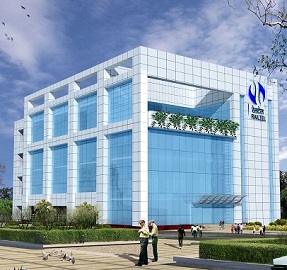Debt recovery in stressed realty projects to rise 16 pc in 2025-26

For Asset Reconstruction Companies (ARCs), the cumulative recovery rate of Security Receipts (SRs) issued towards stressed real estate projects will increase by 16 percentage points to 38 per cent during the current financial year, according to a Crisil Ratings report released on Monday.
The improvement will ride on robust sales of new units in these projects, backed by steady demand in the residential real estate sector, on the back of strategic debt restructuring facilitated by the ARCs, the report states.
The Crisil report is based on an analysis of 70 stressed real estate projects located in NCR, MMR3 and Bengaluru's micro-markets, with SRs issued worth around Rs 10,800 crore.
Majority of these projects were trapped in a spiralling debt cycle due to falling sales, slow collections and lack of funds to complete construction — most of which are addressed today.
Increase in real estate prices and rising demand in the above micro-markets post-pandemic resulting in ramping up of sales have turned these projects viable for funding by external investors, the report further states.
Demand is expected to grow by 7-9 per cent in 2025-2026 for residential real estate in the three micro-markets mentioned above and will support the sales for these stressed projects as well.
About two-thirds of the rated projects are in the mid-premium segment and above, which are expected to contribute up to 80 per cent of recovery for ARCs driven by stable demand in fiscal 2026. The remaining projects are in the affordable segment which is likely to see modest demand and will contribute lower to recoveries this fiscal, the report said.
According to the report, restructuring of debt has emerged as the preferred resolution strategy for stressed real estate projects for two reasons.
One, ARCs can bring down the debt to sustainable levels with an initial moratorium on payments, allowing developers to redirect project cash flow towards construction of units in these projects.
Two, restructuring is also favoured by ARCs due to inherent issues in the real estate sector such as two-fold ownership of land and development rights, multiple Special Purpose Vehicle structures with cross-collateralisation and several layers of approval from state authorities.
While restructuring ensures promoters have skin in the game and resolutions are faster, the aforementioned issues make other strategies such as the Insolvency & Bankruptcy Code (IBC), enforcement and liquidation more time-consuming and thus leading to lower recovery.
About 40 per cent of the stressed real estate projects in the Crisil Ratings SR portfolio have undergone restructuring as the primary mode of resolution, resulting in expected nominal recoveries of up to the full principal amount of debt acquired over an 8-year trust life, the report added.




















